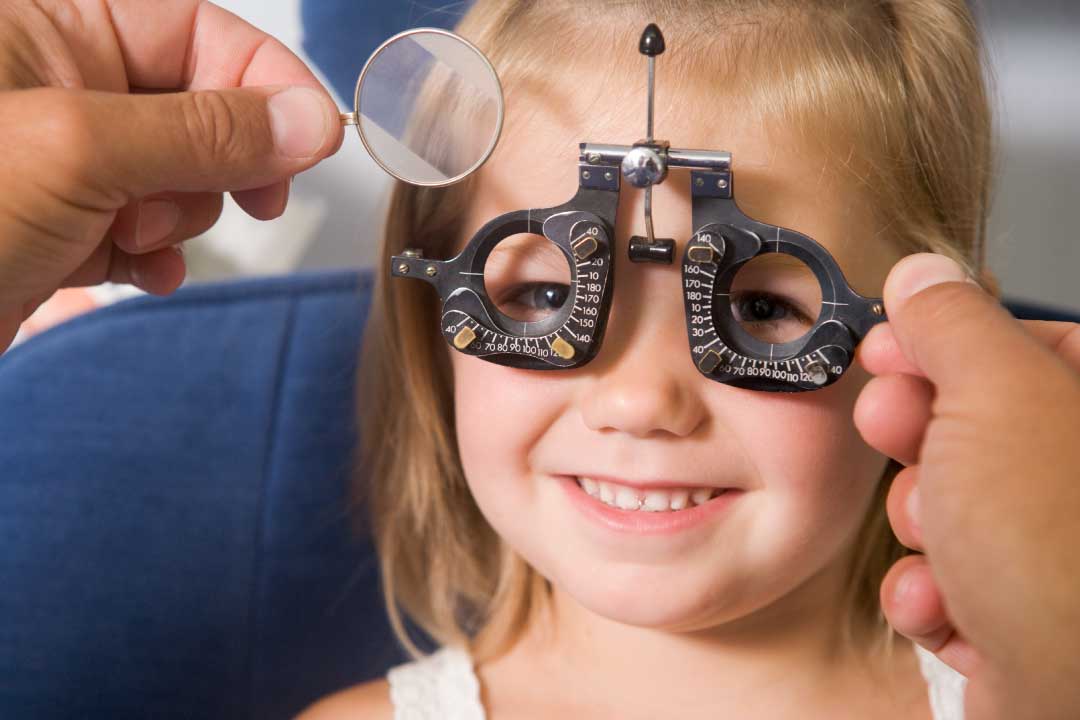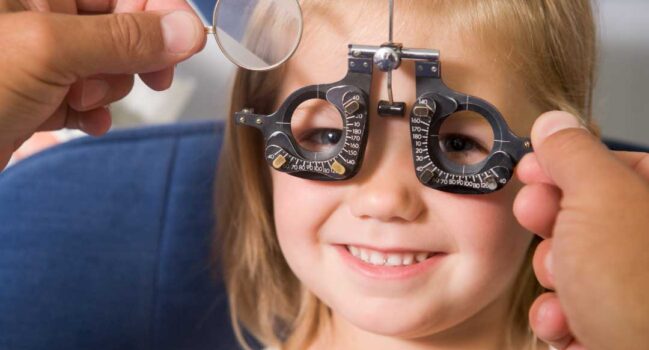
How often should you get your eyes checked?
How often should you get your eyes checked? Well...it depends. Read on to find out more, in this post put together by our head office team
Typically, your eye check schedule depends on two things: your overall health and your age. While advice on specific health conditions can vary, there are general guidelines for the frequency of your eye checks based on your age that we all should follow….
Infants
It is recommended that a child’s first eye exam should take place at six months. Children rarely report vision problems because they just assume everyone sees the same way they do.
An eye exam for an infant (up to three years of age) is different from that of adults and older children, there are a series of tests adapted to suit the age of the young patient. (The charts are different, obviously, they include shapes instead of letters or numbers).
Pre-schoolers
The second eye exam for a child should take place at age three. Getting your child’s eyes tested before school starts gives a child the best chance of success in school, sports, and their young social lives.
Vision problems can affect a child’s behavior, learning and confidence. Frequently, a child’s struggle with reading and learning is traced back to a simple inability to see the teacher’s whiteboard. In the same way, a child who struggles to see objects at distance may be excluded from sports or group activities simply because they can’t see well enough to participate. With early detection, these problems can be prevented.
School-age children
Eye test: annually
In general, children (aged 5 to 17) who are prescribed corrective eyewear or who have been diagnosed with vision problems should have annual eye exams, especially if they wear contact lenses.
Adults
Eye test: once every two years
Adults (aged over 18) who wear glasses or contacts should visit their optometrist at least once every two years. Usually, your prescription will expire in this length of time, and it is important for your optometrist to perform a comprehensive eye exam for any evidence of eye diseases. Frequent eye exams can help prevent eye disease and vision degeneration, particularly if you have High blood pressure. Routine eye examination is the only way to tackle the eye.
During pregnancy is also a good time to visit us as the fluctuations in hormone levels can lead to dry eyes, blurry or distorted vision, or spots and floaters.
Seniors
Eye test: annually
For seniors, annual eye checks are often the only way to identify eye problems and intervene before they get worse.
It is especially important for people aged 60 and over to schedule annual eye exams. Age brings changes to your vision and to your eyes.
People over the age of 60 are susceptible to a range of age-related eye disorders, those being:
Age-Related Macular Degeneration
Age-related macular degeneration (AMD) is a disease that affects the back of the eyes (the macula). It develops gradually, and, if left untreated, can cause the loss of central vision. You may have a family history of AMD, but also the older you get, the more likely you are to get AMD.
In the early stages of the disease, vision is unaffected, which is why it is so important to schedule a comprehensive eye check every year.
Approximately one in seven Australians over the age of 50 have some evidence of AMD.
Cataracts are the clouding of the lenses of the eyes. As the cloudiness increases, it becomes more and more difficult to see at night and to drive. The risk of cataracts increases as you age – while approximately 30% of people over 50 have cataracts, almost 80% of people over 80 have them.
During a scheduled annual eye check, the optometrist will be able to check for cataracts and discuss treatment options before vision is lost.
It is crucial to take part in regular eye checks to avoid any eye problems and check your risk of developing eye problems in the future.
Glaucoma is caused by increased pressure in the eye which causes damage to the optic nerve. It’s known as ‘the sneak thief of sight’ because, in the early stages of the disease, there are no symptoms.
The only way to find out if you have glaucoma is to have a comprehensive eye exam. Your optometrists may do a visual field test which determines whether you have difficulty seeing anywhere in your overall field of vision. Eye tests are regular general health checks, they are important to our overall well being.
No matter what your age, family history or general health scheduling a routine eye examination with us is an important to ensure good eye health.
Ready to book an appointment?
Online bookings available or call us on (07) 3463 0349.
This website does not provide medical advice. It is intended for informational purposes only. It is not a substitute for professional medical advice, diagnosis or treatment. Never ignore professional medical advice in seeking treatment. If you think you may have a medical emergency, immediately dial Triple 0 (000).

